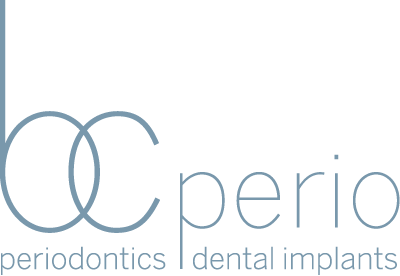Should I be worried about periodontal disease?
Periodontal disease, also known as periodontitis, can severely affect your oral health. Foregoing treatment for gum disease and/or neglecting your oral hygiene could cause tooth loss, bone loss, and a number of other unwanted side effects.
If you have been referred to a periodontist, there is hope. Modern treatment protocols have made it possible to prevent the progression of advanced gum disease and manage its various symptoms.
How can periodontal treatments help me?
Periodontal treatments can help control the infection associated with gum disease, replace damaged and lost tissue, and manage the symptoms associated with infected gums. Some periodontal therapies remove irritants like tartar buildup from the roots of teeth so that the gums can heal and reattach to dental structures. Other periodontal therapies, such as a bone or gum graft, can help replace tissue lost to the disease.
What if I have receding gums?
Gum recession is a common side effect of periodontal disease. Periodontal therapies that remove tartar buildup as well as those that smooth the roots of teeth can help the gums regenerate new tissue. Severe gum recession can also be treated with grafting procedures.
Will I be comfortable during gum disease treatments?
Our practice takes every measure possible to ensure that our guests experience comfortable treatment. We may administer local anesthetics that numb treatment areas as well as prescription medication to manage nervousness and anxiety.
What should I avoid if I have an upcoming treatment for gum disease?
Before periodontal treatment, our practice will give patients packets of information that detail how to prepare and recover from specific procedures. As a general rule of thumb, patients should avoid drinking alcohol and smoking before and after their procedures. They should also consume a soft and/or liquid diet as directed.
If you have questions about gum disease and periodontal therapies, call our team at BC Perio to schedule a consultation with our periodontist.
